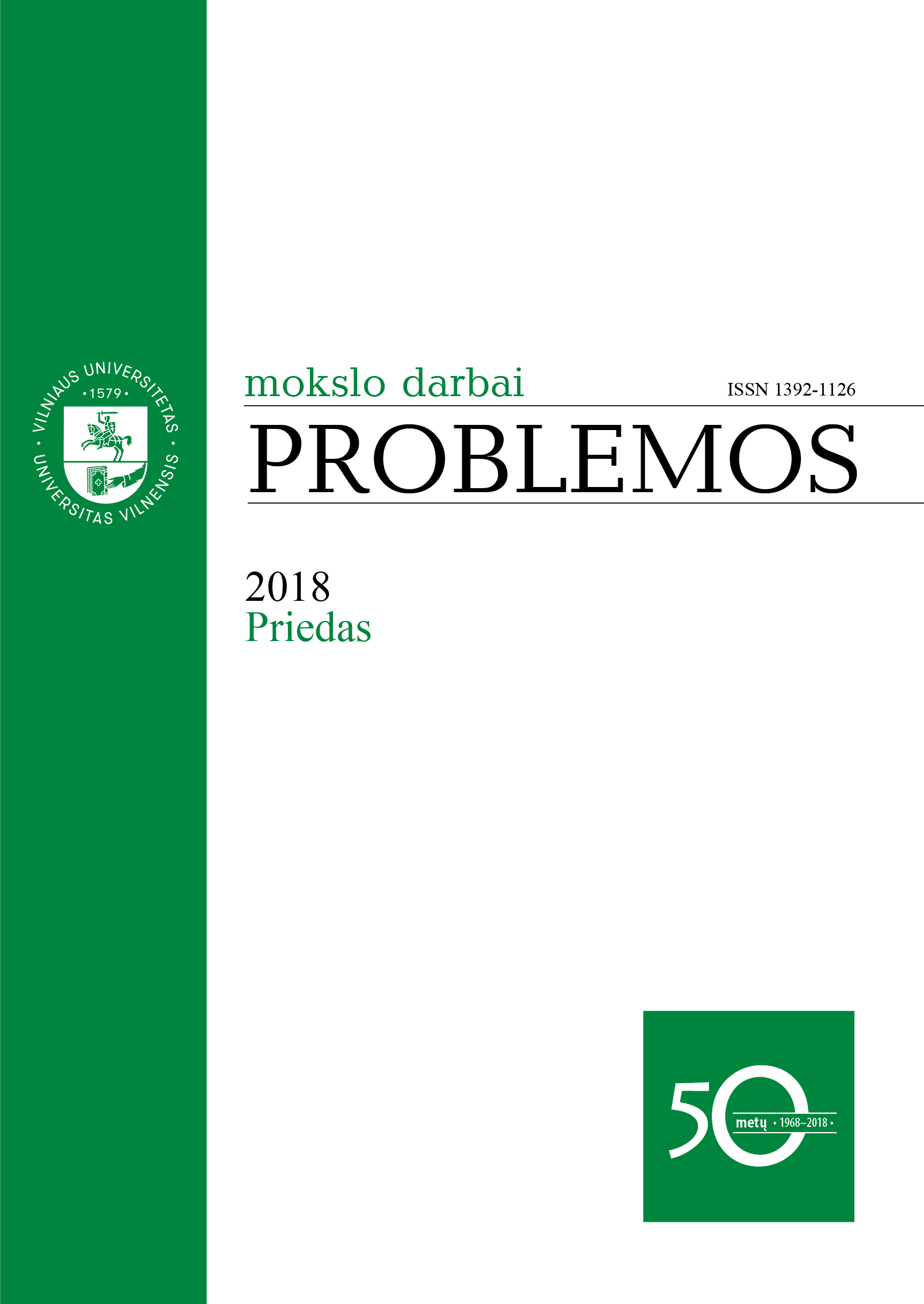
APIE OZOLĄ, FILOSOFIJOS KA TEDRAS IR TĄ LAIKĄ
A conversation between Algimantas Jankauskas and Bronislovas Genzelis
More...We kindly inform you that, as long as the subject affiliation of our 300.000+ articles is in progress, you might get unsufficient or no results on your third level or second level search. In this case, please broaden your search criteria.

A conversation between Algimantas Jankauskas and Bronislovas Genzelis
More...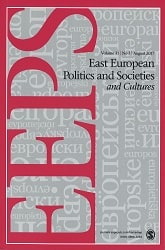
There is nothing new in the thesis that nations are not "natural" and everlasting subdivisions of humanity. There is no need to repeat constantly that modern nations are of relatively recent origin. People interested in the problem should have realized that this had been made clear more than a hundred years ago, primarily by Marxists in the multinational Habsburg empire, and that the best, classic works on this subject were published at the very beginning of our century. [...]
More...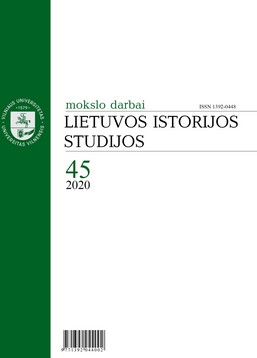
Visuotinės istorijos istoriografijos kurse trumpai pristatydavau įžymius praeities istorikus ir kartais pusiau juokais sakydavau, kad studentai pasirinko ypatingą specialybę, nes istorikai ilgai gyvena ir rašo iki pat gyvenimo pabaigos. Neprisimenu, ar tokiame kontekste paminėdavau mūsiškius – Mečislovą Jučą ir Edvardą Gudavičių. Ilgaamžių istorikų buvo ir tebėra taip pat kaimynėje Lenkijoje. 2020 m. gegužės 15 d. suėjo 90 metų pasaulinio garso istorikui ir politologui Andrzejui Walickiui. Jo moksliniuose darbuose nagrinėjama daugiausia idėjų istorija. Lenkijoje panašia tematika užsiima nemažai mokslininkų: Walickio mokinys Lodzės universiteto profesorius Andrzejus de Lazari, neseniai miręs Jerzy Szackis, Gdansko universiteto profesorius Zbigniewas Opackis ir kiti. Tačiau ryškiausias yra Walickis.
More...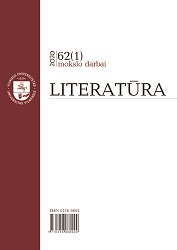
The analysis of professors in Humanities at Vilnius University in 1948–1956, the period of studies and post-graduate course of Donatas Sauka, established that professors who had not accepted the doctrine of Marxism-Leninism and who had obtained their academic titles in independent Lithuania or pre-revolutionary Russia had left the university. During the first year of Soviet rule, a group of persons who had contributed to Lithuania’s incorporation into the USSR and undertaken to establish the doctrine at the university became professors. They were active in the 1940s and 1950s and created a climate of fear. Some lecturers who were neutral towards the doctrine had been granted the title of professors for their contribution to the science in order to raise the prestige of the university. A cluster of lecturers who attempted to interpret literature without applying primitive sociologisation was formed in the Department of Lithuanian Literature in mid 1950s. At the initiative of the Central Committee of the Lithuanian Communist Party, actions were taken (1956–1961) to force the group of young lecturers to follow the requirements of the doctrine. Having defied the requirements, they were dismissed. D. Sauka belonged to the group, but had retained his job as a lecturer without changing his views towards the doctrine. Some professors, associate professors, and students at the university participated in the ideological cleansing of the Department of Lithuanian Literature. They were later promoted. During the 1960s, among literary scholars only Jurgis Lebedys became a professor. At that time, high qualification requirements for obtaining a professor’s title were set in the USSR. Those who had obtained the titles of professors had different approaches towards the doctrine of Marxism-Leninism. Some showed support only formally and expanded the scope of analysed issues by slowly validating new fields of knowledge and developed individual thinking; others attained high qualification and performed the actions of implementing the doctrine required by the party leaders; still others sought their personal goals by using maintenance of the doctrine as a pretext. The guardians of the doctrine created obstacles for unwanted persons in becoming professors by trying to prevent them from defending their doctoral (post-doctoral) theses and publishing their articles and works; they tried to create a wall of silence around them. In the 1970s, D. Sauka and Vytautas Kubilius defended their doctoral (post-doctoral) theses; both of them had surpassed the topics defined by the doctrine and opened new fields of knowledge in Lithuanian literature and culture. Attempts were made to prevent them from defending their theses, but thanks to the vigilance of his colleagues, D. Sauka defended his thesis and became a professor after four years. The approval of V. Kubilius’s doctoral (post-doctoral) title lasted six years, yet one of the strongest literary critics and scholars was not granted the title of professor from the Soviet university. In the 1980s, a number of students at Vilnius University obtained titles of professors. The doctrine itself had changed at that time, the communist government avoided scandals, the level of mentality was higher at the university, and simultaneously, the behaviour of lecturers themselves was self-censored; some of the guardians of the doctrine had voluntarily abandoned their position and those who appreciated the works of their talented colleagues appeared. At the juncture of the 1980s and 1990s, professors of Vilnius University became more prominent in the society: these were personalities that developed individual thinking of their own and others, done valuable work for the culture of Lithuania, retained relations with the nation and had the goal of creating an independent state of Lithuania.
More...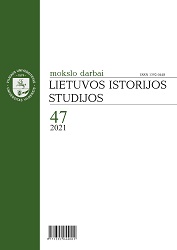
The article examines the introduction of Soviet Marxism (Marxism-Leninism) into the Lithuanian higher education system in 1944–1947. Based on archival sources and existing historiography, this paper explores the development of the higher education system in Lithuania during the first years of the Soviet occupation, including the translation, publication, and dissemination of ideological texts. It is argued that the introduction of Soviet Marxism in Lithuanian higher education institutions in 1944–1945 was carried out in a forced and chaotic manner, the organization of teaching and the preparation of ideological literature was slow, and there was a lack of staff to teach ideological courses. First came the creation of formal institutions (departments, divisions, institutes), and only then a consistent introduction of Marxist-Leninist teachings and the implementation of ideological control.
More...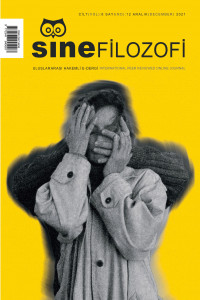
According to Georg Lukács, one of the most important signs of the lack of class consciousness among the lower-class individuals is the immoral condition in which the individual cannot abandon the forms of ideological and interest-based compromise with other classes. According to him, class consciousness is about how individuals perceive themselves and their position in the current production process together with the social structure they are in. In societies where class consciousness is not developed, the lower-class individuals who are hindered from fulfilling their basic needs, and who even consider having a job as a matter of luck, are faced with circumstances where they do not question the reasons of their current condition, step on each other and see each other as a threat. In this respect, the most significant part of class consciousness is that individuals are always supposed to be in solidarity to achieve their common class goals in the face of the phenomenon of class conflict. Previously, in Snowpiecer (Snowpiecer, Bong Joon-ho, 2013), Bong Joon-ho addressed the phenomenon of class conflict between the ruling and the ruled in a horizontal and artificial space, i.e., a train, with a dystopian language. In this study, it is argued that Bong Joon-ho goes the opposite direction in Parasite: it deals with the class society and the subordinate-superior relationship in a mansion as a natural habitat from the perspective of class consciousness or the lack thereof. Through the example of the Kim family, who could not find out the causes of their problems resulting from their class condition because of the lack of class consciousness, this study aims to show that these people without consciousness exist both as authors and actors of their own tragedies by following Georg Lukács’ concept of class consciousness.
More...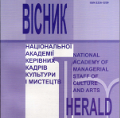
The purpose of the article is to analyze the theoretical aspect of the concept of musical modernism O. Korchova, to identify debatable aspects important for the creation of the inter-artistic theory of modernism. Methodology: used historical, cultural, and comparative methods, with the involvement of philosophy and psychology. The scientific novelty of the study is that the musicological concept of modernism is compared with the literary, which proves the need to create an inter-artistic theory of modernism, necessary in the practice of stylistic analysis of modernist works. Conclusions. An important achievement of O. Korchova's research is the search for a "stylistic formula" of each composer of the epoch. The artist is looking not just for a consonant style or form, but for himself and his style. Individual style does not arise from simple combinations of borrowed. Styles of modernism conflict with each other, to combine them, to avoid eclecticism, you need to find a way and a reason to combine. The way to find your style is never purely artistic, it is always vital. Modernists, putting art in the first place in aesthetics, discovered the concept of life creation, which distinguishes the modernist from the artists of previous eras. Life-creation is a special way of an artist into art, movement simultaneously in two dimensions, external and internal, their constant coordination and gradual transformation of oneself, with life and works together, into a cultural phenomenon. And if this happened - then something unique was formed, unique, completely individual, and at the same time universal, something original and holistic, something that will become a value for contemporaries and descendants, that is, the author's style. Just as it is not easy for every artist to find his style, so it is not easy for a researcher to find a formula for this style. But without such a goal, the study of creativity will be historiographical, descriptive, and rhetorical. It is important for every scholar who studies specific texts of culture to understand the trends of the era and the psychology of the creative process, all the laws that unite.
More...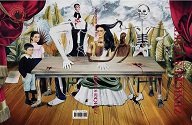
Povijesni likovi ljudske egzistencije odgovaraju ideji čovjeka kroz pet načina očitovanja "duhovnoga bitka": (1) mita, (2) religije, (3) umjetnosti, (4) filozofije i (5) znanosti. Likovi pritom poprimaju različite obrise i figuralno određenje. Sjetimo se tek načina kako je tijekom povijesti lik filozofa mijenjao značenje počevši od Heraklita, Sokrata do Spinoze, Marxa, Kierkegaarda i Nietzschea. Ovdje, dakako, nije posrijedi slikovno ozbiljenje ideje. Umjesto toga mislimo na simboličko značenje lika kao duhovne moći ozbiljenja onoga što čini bit ideje u pojavnome svijetu. Epohe se mogu čak odrediti vladavinom referencijalnih okvira njihove moći kojom upravljaju ne samo ljudskim svijetom, već i prirodom, odnosom kozmičkih sila, konstelacijama društva, politike i kulture. Nije nimalo neobično da se ono prvotno ili začetno (arché) odvija u neposrednosti odnosa božanskoga, prirodnoga i ljudskoga. Mitski čovjek odnosi se spram bitka tako da ga opjevava kao tajnu postojanja živeći smjerno u strahu od bogova. Tome usuprot, znanstveni čovjek s nastankom novoga vijeka bitak već ništi time što ga preobražava u predmet i predstavljanje kao znanstveno određeni objekt.
More...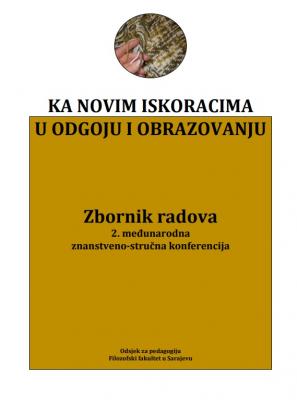
In recent years there are often discussions in public sphere regarding the curriculum, its reforms and its content. The stronger influence of the hidden curriculum than the influence of official curricula is neglected. By realization of an official curriculum, social behaviour is created and promoted, as well as the daily life in the classroom is organized and pupils’ educational values transferred. There are many school activities that are directly or indirectly involved in child raising and which, as such, constitute a hidden curriculum. The hidden curriculum is not a part of the official and public programs, although it makes the regulation of pedagogical interaction and refers to implicit practice specific to an educational area. In fact, it defines what students adopt from the values and norms of teachers, school rituals and procedures, from the physical environment, the relationship between the subjects in school, the school culture, and so on. In this paper we will try to present some of the implications of the hidden curriculum, especially by reviewing a teacher who directs the educational process. Because of the impossibility of unambiguous definition, the authors agreed that the hidden curriculum reflects an unnoticed standardization of relationships within the context of the school and that teacher behaviour patterns are of crucial importance. Therefore, the aim of this paper is to define the concept of the hidden curriculum at its conceptual level as well as its content in the context of school culture, teachers’ implicit theory and its ideological framework.
More...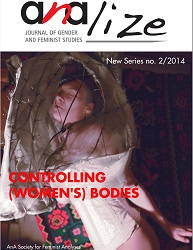
Review: Marxism, Gender and “the Transition”: A Comparative Review of Federici and Seccombe (Gary Blank)
More...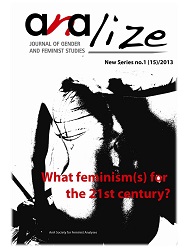
This article identifies a number of trends over the last two decades in the evolution of feminism in academia, with a focus on the significance of cultural studies, the experience of socialism and post-socialism for women, and new forms of feminist activism to suggest both points of tension and also necessary departures in order to render feminism still relevant.
More...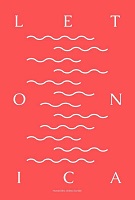
The focus of this article is Latvian textbooks published in the USSR from 1920-1930 for Latvian pupils living in the Soviet Union, and the use of folklore texts in them. Attention is focused on the principles of the selection of specific texts and how the authors of textbooks interpret folklore texts. This research aims to determine how folklore units available in Soviet Latvian textbooks resonated with the dominant dogmas of the Marxist-Leninist ideology in the USSR. The first half of the article describes the most important aspects of the Soviet Latvian diaspora and the organization of education. In this part of the study, all Soviet Latvian textbooks issued from 1920- 1930 were examined: ABC, Latvian language and literature textbooks, school reading books and chrestomathies, as well as published selections of folklore units (24 books in all), not all of them included folklore texts. The focus of the analysis is only those books in which folklore had been published. The analyzed folklore units show how these texts can be used for propaganda purposes using various methods: by selectively picking out only those folklore units that correspond to the Marxist-Leninist ideology, commenting and creating paratexts, ignoring Latvian folklore genres (mythical songs, magic tales), using metrics and formulas of classical folklore to create texts with new content glorifying Soviet reality.
More...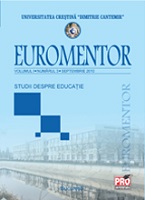
Since January 2020, the global community has faced what may be tagged a biological war against the ravaging COVID-19 pandemic. While many countries in the world have been hard hit by this virus, response patterns to the pandemic have varied from country to country and, expectedly, with varying success rates. The global community witnessed a surge in socialist policies as a response pattern to the COVID-19 pandemic. This paper argued that the countries with poor COVID-19 responses are predominantly capitalist economies under the curse of overlooking secondary consequences. The paper examined concepts such as socialism, capitalism, free market and command economy. The paper then offered philosophical argumentation for its conclusion that the COVID-19 reality is strong evidence that adopting socialist policies in an economy is more reliable than a predominantly capitalist economy, and should be the background to rebuilding the post COVID-19 economies.
More...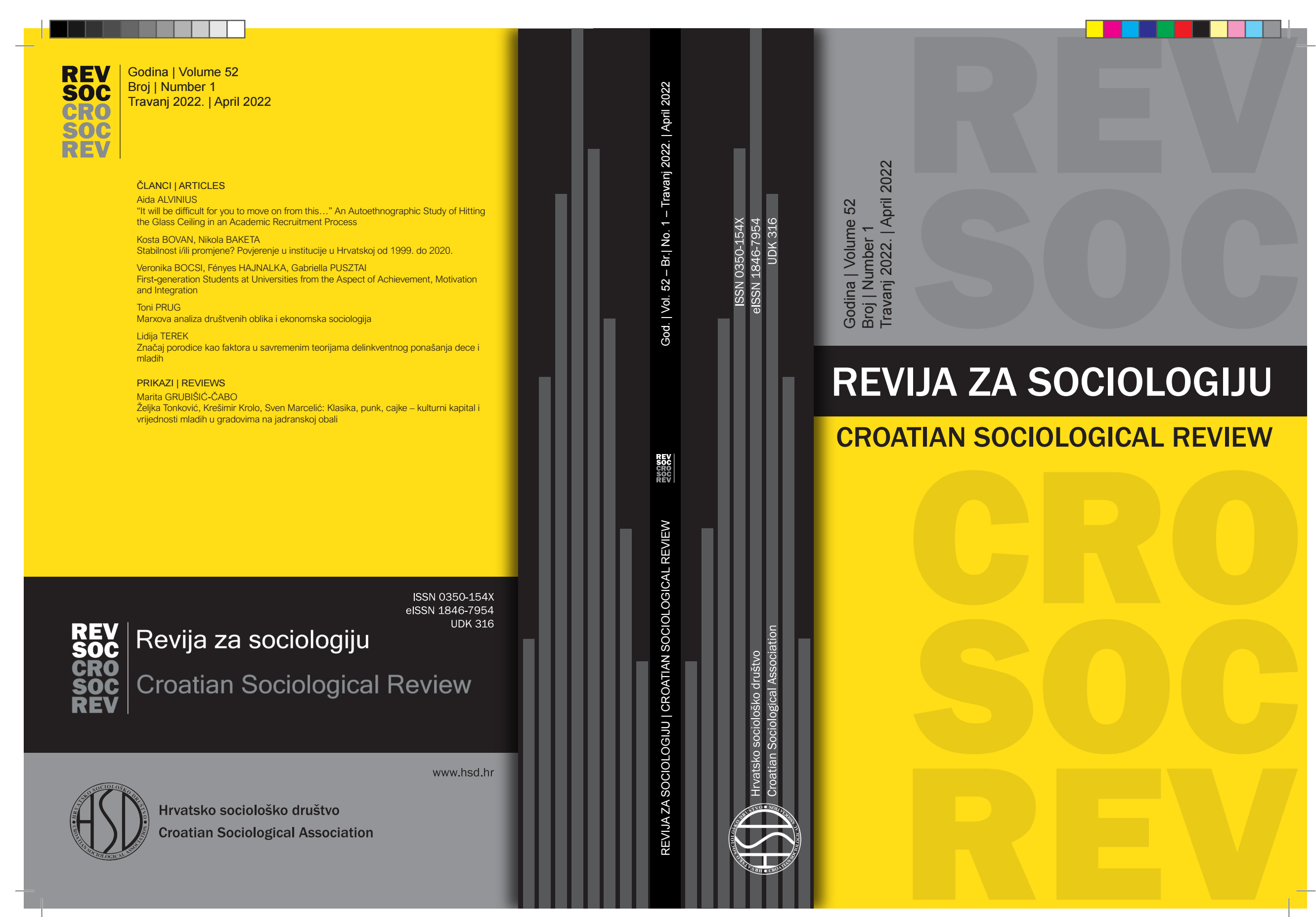
This article deals with the New Reading of Marx, an interpretation focused on the analysis of social and value forms and associated social relations. Marx’s analysis of social forms makes it possible to distinguish determinate abstractions (commodity and capital in the capitalist mode of production) from general ones (product, money), denaturalizing the economic vision of production, opening up a way for possible understanding of different modes of production and their social character. The article argues that the analysis of social forms opens up a path for re-approaching the field of enquiry that conventionally belongs to economics, whose abandonment marks sociology for most of its history, with the sociological analysis, thus rendering visible social dimensions of the object of investigation, whilst questioning and disputing the monopoly of economic theories and categories. The connection between Marx’s analysis of social forms and the work of other classical sociologists is demonstrated, opening up the discussion of its relevance for economic sociology. Reviewing the new economic sociology, the article shows how its Weberian roots drastically narrow the space for integration of Marx’s work. It is argued that the reading of Marx presented here can however be situated in a more broadly understood contemporary economic sociology that includes a wider range of approaches retaining the multi-paradigmatic character of sociology. In conclusion, the article discusses the relationship between domestic sociology and Marxism, arguing that sociological literature can be enriched by re-evaluating Marxism through the prism of the New Reading of Marx.
More...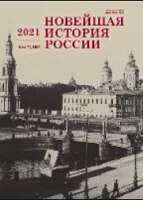
The article explores one Bolshevik functionary between 1917 and the early 1930s, N.N.Tagunov. A child of the working class who completed secondary education, Tagunov represents a type of young Bolshevik actively involved in political life, passionate about philosophical problems, and irreconcilable to any deviation from the party line. In 1925–1934, Tagunov repeatedly sent letters to Joseph Stalin and several times received responses. In November 1925, Tagunov, as a member of the district committee bureau of the Central city district in Leningrad, sent a letter to the gubkom with sharp criticism of Zinoviev’s supporters on the eve of the Fourteenth party congress. Information about Tagunov’s letter was brought to Stalin, who replied to Tagunov; Tagunov in turn sent Stalin two long letters about the mood of Leningrad’s party leadership. At the same time, Tagunov tried to interest Stalin in his own theoretical works in the field of philosophy. After a short stay at the Institute of Red Professors in 1927, he sharply attacked leading Marxist philosophers of the time, accusing them of serious theoretical errors. At that time Stalin did not support Tagunov. After moving from Leningrad to Moscow in 1931, Tagunov worked in various institutions. At the end of December 1934, he sent Stalin a long letter for the last time, accusing former chairman of the Leningrad Soviet N.P.Komarov and a number of employees of the Party apparatus of feeding a gang of “Zinoviev’s murderers”. Stalin’s resolution read: “I read it. It is possible that comrade Tagunov is right”. The letter
More...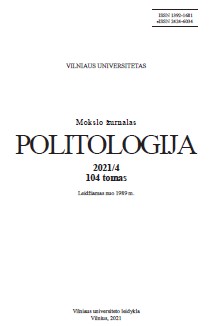
Kai ši knyga buvo pirmą kartą išleista 1953 metais (tada jos pavadinimas buvo Marksizmas: interpretacija, Londonas: SCM leidykla), Stalinas dar nebuvo miręs, o šaltasis karas jau buvo įsibėgėjęs. 1953 metų vasario mėnesį buvo sukurta bendra NATO karinė vadovybė. Birželio mėnesio darbininkų sukilimo Rytų Berlyne numalšinimas įkūnijo negailestingą visos Rytų Europos subordinaciją Sovietų interesams. Anuomet tarp daugelio Vakarų apologetų jau buvo plačiai paplitę senu papročiu nekritiškai priimti Sovietų Sąjungos tvirtinimą, esą jos socialinė, politinė ir ekonominė praktika įkūnijusi marksizmo teoriją tam, kad patys galėtų pasiteisinti dėl visapusiško marksizmo atmetimo.
More...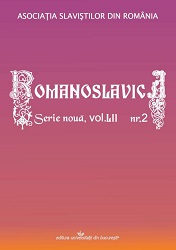
The intention of this paper is to research how travel narratives construct representations of identity and alterity in selected children's novels published from 1907. to 1941. The paper aims contextualised, local and political reading instead of pedagogical or impressionist-esthetical approach. A main thesis is that production of knowledge through discursive practices constitutes identity or alterity of characters as well as the knowledge depends on relations of power and its distribution within social and cultural field. Thus, I differentiate, using R. Williams's terminology, residual, dominant and emergent forms of discursive practices that product identity and alterity in analysed novels.
More...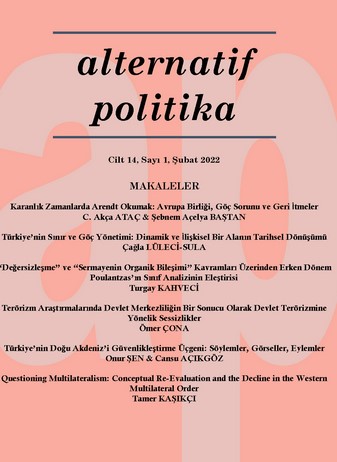
It can be said that the emergence of class theories has a parallel history with the development of the Industrial Revolution and the establishment of capitalist production relations. However, this development adventure does not deny the existence of classes before capitalism from a factual point of view, does not fix them on the established order of capitalism. The essence of Marxist class theory is the idea that the dynamics of the historical process are class struggles. In this study, first of all, the class definitions of the Marxist tradition from early Marxism to Neo-Marxism and the social historiography of labor are discussed in a general framework. Traditional Marxism and the trends in the literature that followed it were examined. Then, with the book “Political Power and Social Classes”, a special title was opened for the early period Poulantzas, and his approach to the state, social formation and classes was conveyed. In the class analysis Poulantzas put forward in his early texts, the inclusivity of the notions of productive labor/unproductive labor was discussed, and the classifications of the working class, traditional and new petty bourgeoisie were examined. The main argument of this research is the claim that Poulantzas's class analysis during his early period, excluding his late period from structuralist-functionalism to relational state theory, could not respond to economic notions such as devaluation and the organic composition of capital.
More...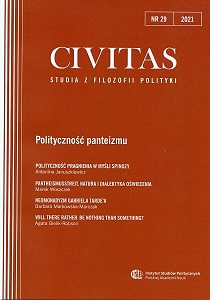
The article presents the political nature of Benedict Spinoza’s ontological system using the example of the concept of conatus (desire). The author defends the coherence of the Dutch thinker’s thought, arguing with Leszek Kołakowski’s interpretation, according to which Spinoza’s system is characterised by the insurmountable antinomies of an individual and the infinite. As the article shows, noticing the fundamentally political character of Spinoza’s ontological notions makes it possible to transcend these antinomies towards a coherent and clear interpretation. While focusing on the notion of conatus, the author analyses two of Kołakowski’s antinomies. The first concerns the problem of duration and individuality, and presents the contradiction between the principle of the self-preservation of individuals and the indivisibility of substance. The second touches upon a strictly ethical issue – the alleged incompatibility between striving to preserve oneself in one’s being and striving for the intellectual love of God. The author shows that both antinomies stem from Kołakowski’s failure to recognise the political nature of the notion of conatus and thus the political dimension of ethics.
More...
The purpose of this essay is to put Ernst Bloch’s philosophy to a test suggested by Hans Blumenberg in The Legitimacy of the Modern Age. According to Blumenberg, modernity constitutes the second, successful, attempt at overcoming Gnosticism, after the first attempt, undertaken by Christianity, had failed. However – Blumenberg argues – it was not modern philosophy, but only science which had managed to escape Gnosticism’s ontological trap of viewing the world as an illusion bordering on nothing. Modern metaphysics had proved unable to liberate itself from the powerful pull of the Gnostic rejection of being, in spite of all philosophical efforts to affirm the existence of material reality. Even when claiming to be materialist, it had remained, in its core, suspicious about matter as an imperfect and privative mode of being. Ernst Bloch, one of the strongest proponents of panthestic vitalism in late modernity, seems to be trapped in a similar aporia: while he attempts to use – and simultaneously overcome – his early apocalyptic Gnosticism, fully manifest in The Spirit of Utopia, for the sake of the material reality and speculative materialism which combines Marx, the Aristotelian Left, and Schelling, he still remains a thinker of the apocalypse, who wishes the world to end in a violent destruction of all matter.
More...